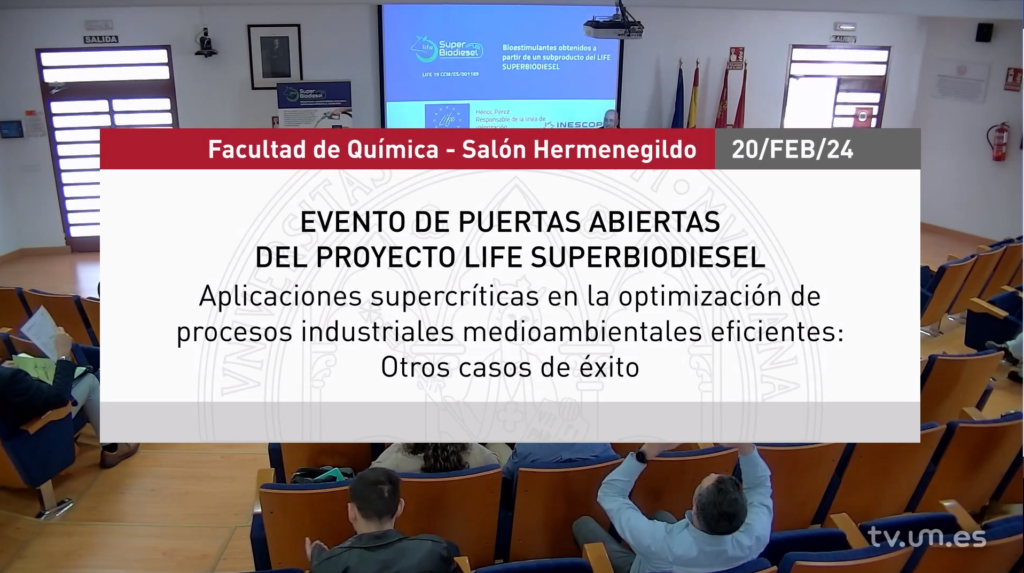PhD. Henoc Pérez Aguilar presented a project on poultry industry waste valorisation for the production of agricultural biostimulants. The process implies the mechanical separation of skin and meat, followed by protein extraction by enzymatic hydrolysis. The laboratory and pilot scale tests confirmed the feasibility of the process and the biostimulants meet the quality standards.
Biostimulants have shown to improve plant growth in the in vitro studies and show a potential effect in plant growth and development, which allows its application as biostimulant agent in agriculture. Furthermore, organic biostimulants reduce the carbon footprint in comparison with traditional inorganic fertilisers, which highlights its sustainable value.
The project shows that sustainability implies not only technology or product but also the market response to specific needs.
PhD. Marcelo Ortega presented the “Smart Agro-Mobility” project, which aims to produce vehicular biomethane from pig slurry to reduce C02 emissions. Tests show that biomethane would be feasible to use in cars and agricultural machinery, and thus represents a sustainable and viable alternative.
Ms. Mayra LaCruz notes the consortium’s participation in the animal protein valorisation project. The project makes use of animal by-products and industrial waste to create greater added value products within the framework of circular economy. The challenges related to the introduction of the products in the market are discussed, as well as the benefits in terms of sustainability and resource management. The presentation stresses the versatility and efficiency on the use of resources, despite some obstacles to overcome.
Mr. José Castro, representative of the Unió de Llauradors, presents a project aimed commercially at the valorisation of waste from eggs obtained in the poultry industry. This project is born from the reality and necessity of reusing broken eggs, generating interest in the business field. Improvements on the carbon footprint, circular economy and non-biological material are evidenced. Moreover, the project stimulates the creation of synergies among industries, driving the demand for products derived from broken eggs and opening new market lines.
These presentations can be seen, in Spanish, in the following link:







Comments are closed.